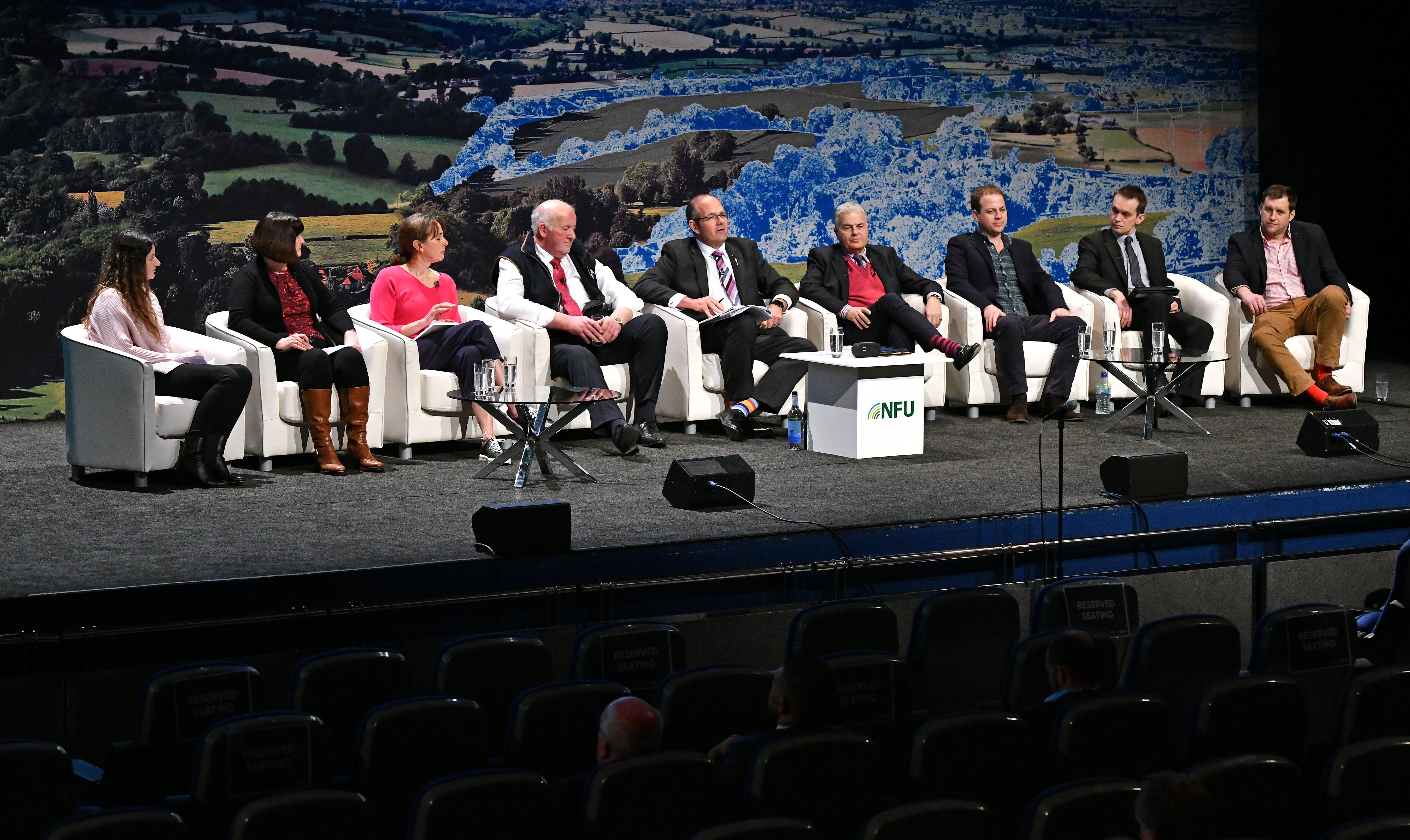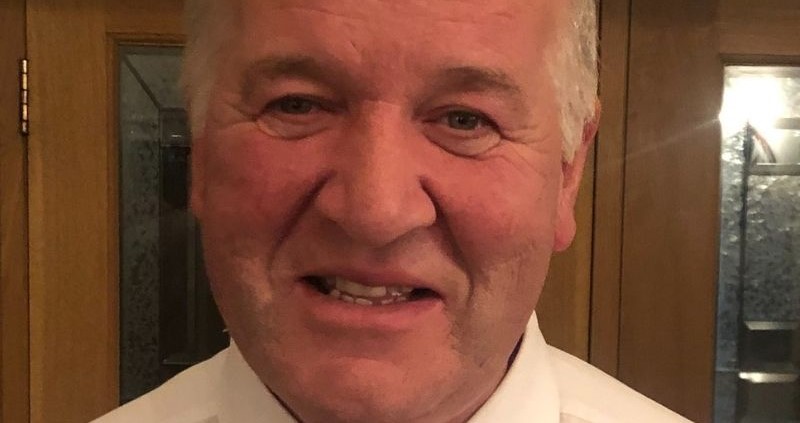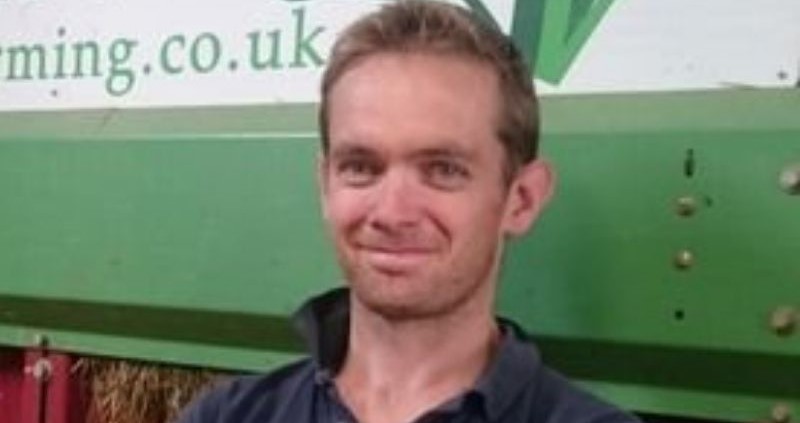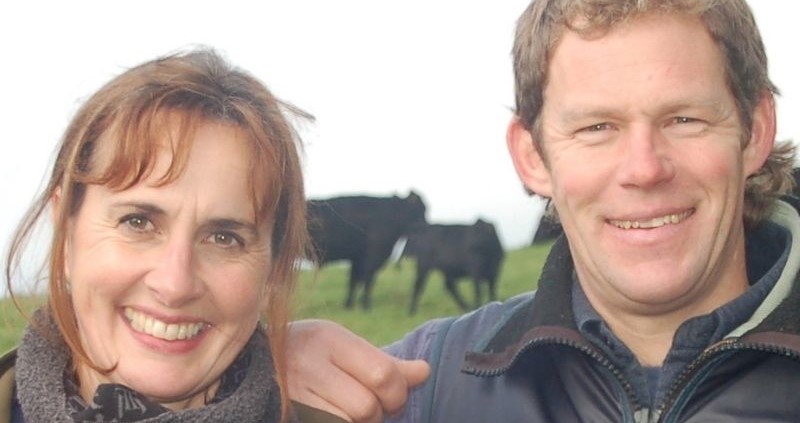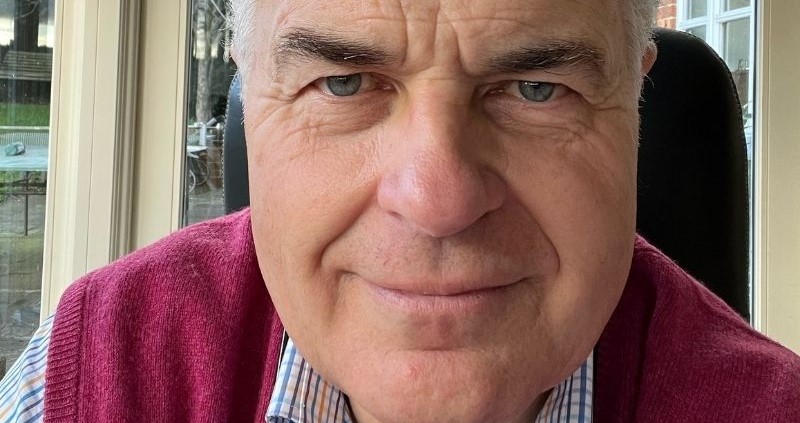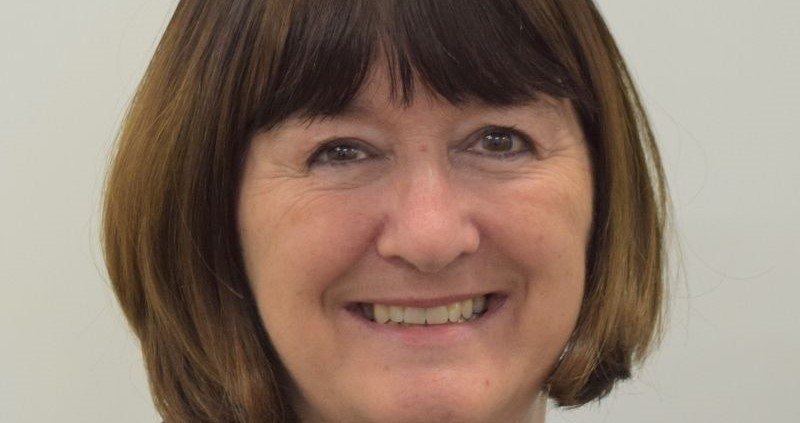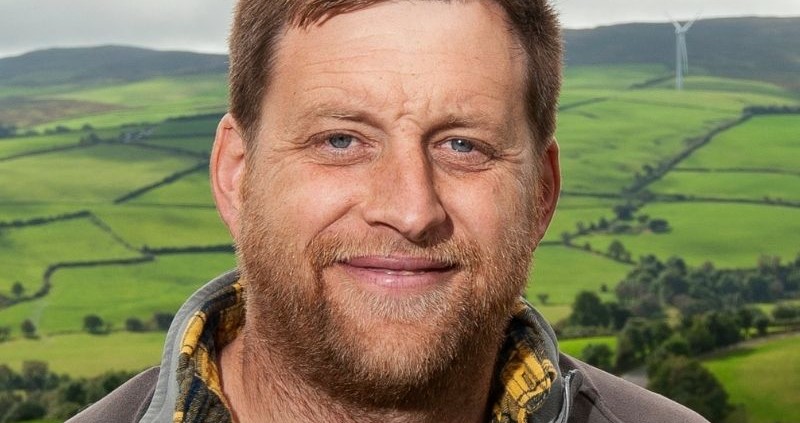Our members shared the stories of the developments they made to build-up the resilience of their businesses, themselves, and their families.
NFU Vice President Tom Bradshaw chaired the discussion, taking questions from the floor.
Very often necessity was the mother of invention for farmers and it is difficulties in the market, environment or succession that forced them to innovate.
Ray Brown of Bidlea Dairies talked about global political concerns in 2014 led his family to look local to protect profitability in his Cheshire business.
“Volatility in my book was ups and downs and what we were getting at that time were downs and downs. And I thought, I can’t affect things going on with Russia and I can’t affect the Chinese pulling out of the market because they had overbought, but at the same time I was being told by people local to me, ‘why can’t we buy your milk?’ And I thought there’s a lot of sense in that.”
The family have been selling dairy cows for many years with some cow families going back 103 years, but they needed a new venture.
The family built its own dairy to milk 300 cows, evolved into ice cream when lockdown led them to throw away cream and created a destination coffee shop.
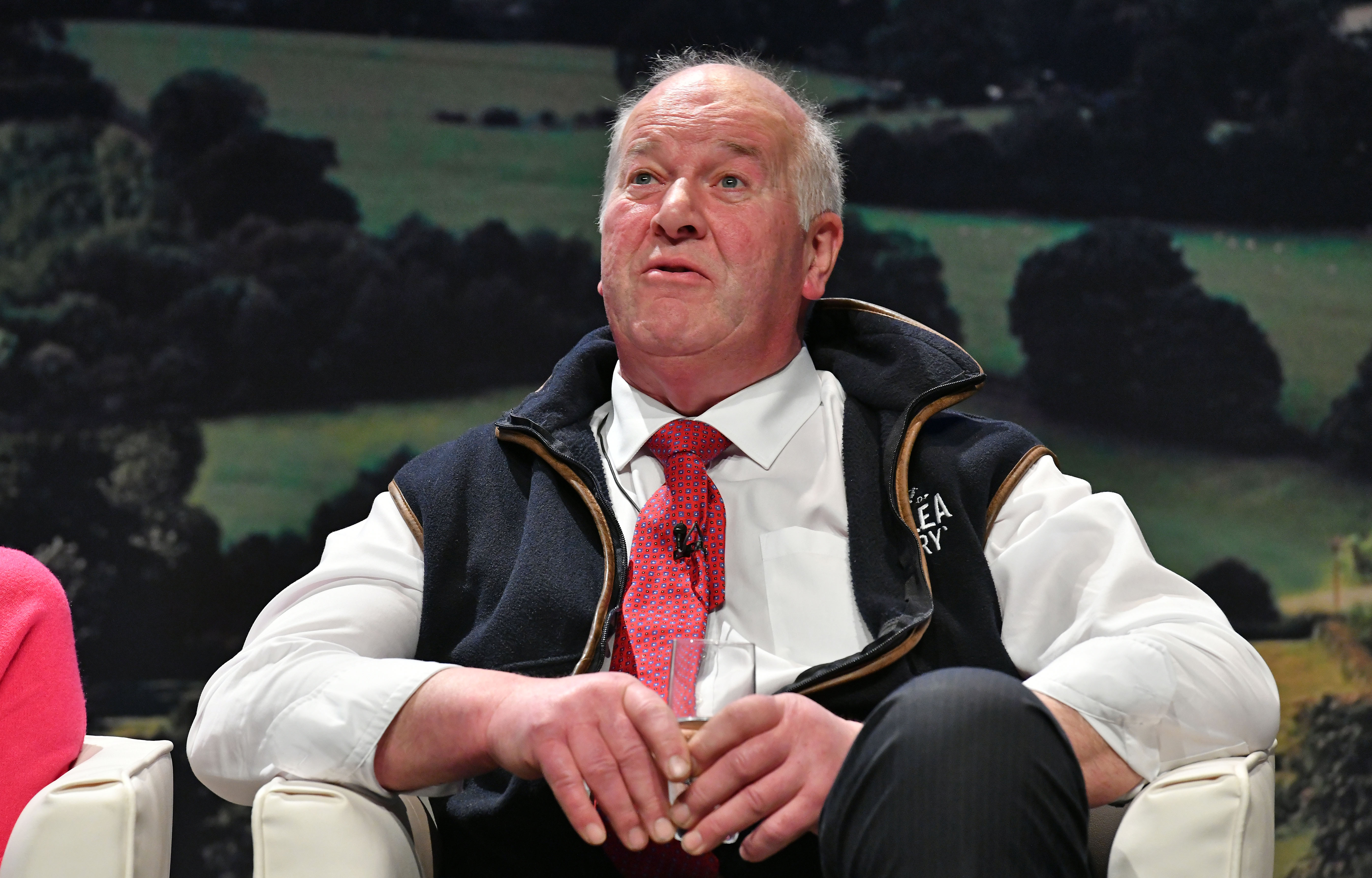 Above: North West member Ray Brown has built a resilient business going into a post-BPS era.
Above: North West member Ray Brown has built a resilient business going into a post-BPS era.
Rob Halliday advised members not to “take criticism from anyone you would not ask for advice” and said his resilience came from working on his sense of perspective by remembering his grandfather who won a Victoria Cross as a Marine.
He has two core agriculture enterprises: a 20-year tenancy with Cornwall Council and a share farm business. His farm is half organic and includes a contract forage wagon operation, green waste enterprise, small glamping business, and he does consultancy as a chartered surveyor, while his wife, Louise, is a teacher.
He said: “In total we farm approximately 400 acres, 120 sucklers finishing all of their stock, 150 ewes and some cereals. And with this mix we have tried to produce what I think will be a resilient business going into the post-BPS era.
“We aim to be sustainable without excessive external input, to try and control our costs. We limited our inputs and we are driving our on-farm production. All of our feed is now home produced, we under sow pea barley whole crop with herbal leys and we also grow combinable pea and barley combi crop, which we crimp and use as a finishing ration alongside red clover - we are trying not to intervene with our soils too much.”
Opportunities
Meurig Raymond award winner Llŷr Jones inherited a sheep farm at the age of 19 and realised that he had too many eggs in one basket. Now he runs eight businesses from his kitchen table, including hydro electric power and the only Welsh rapeseed oil company.
Llŷr provides 10 million free-range eggs to Tesco and is now looking at changing to white hens that live longer, while replacing soya in their feed with the by-product of the oil enterprise.
“Resilience for me is taking advantage of what you have on your farm,” he said. He said that farmers need to be do-ers and spot opportunities as they arise. The 2020 relaxation of planning rules to allow 56 days of camping on fields enabled him to turn an 80-acre mountain site into the most profitable acres on his farm by ‘farming tourists’. “Your farm is only limited by your imagination,” he added.
Research
The Mee family spent two years researching and planning when a former colleague pointed out the opportunities presented by moving into blueberry production. The family had sold their Essex farm to move to Northamptonshire in order to expand the business.
Peter and Zoe Mee wanted to make their business sustainable to include their children Emily and Charlie.
They embarked upon their journey with 15 hectares of polytunnels and the knowledge that they would not see a profit for two years, despite a high investment. In 2021 they picked 149 tonnes of blueberries, 127 tonnes for Waitrose and M&S, and they employed 55 seasonal workers.
Emily is a chartered accountant and she is focused on developing new products, such as jam, liqueurs, rose wine and juice to build their own brand to cut their waste from 14% to 5.5%.
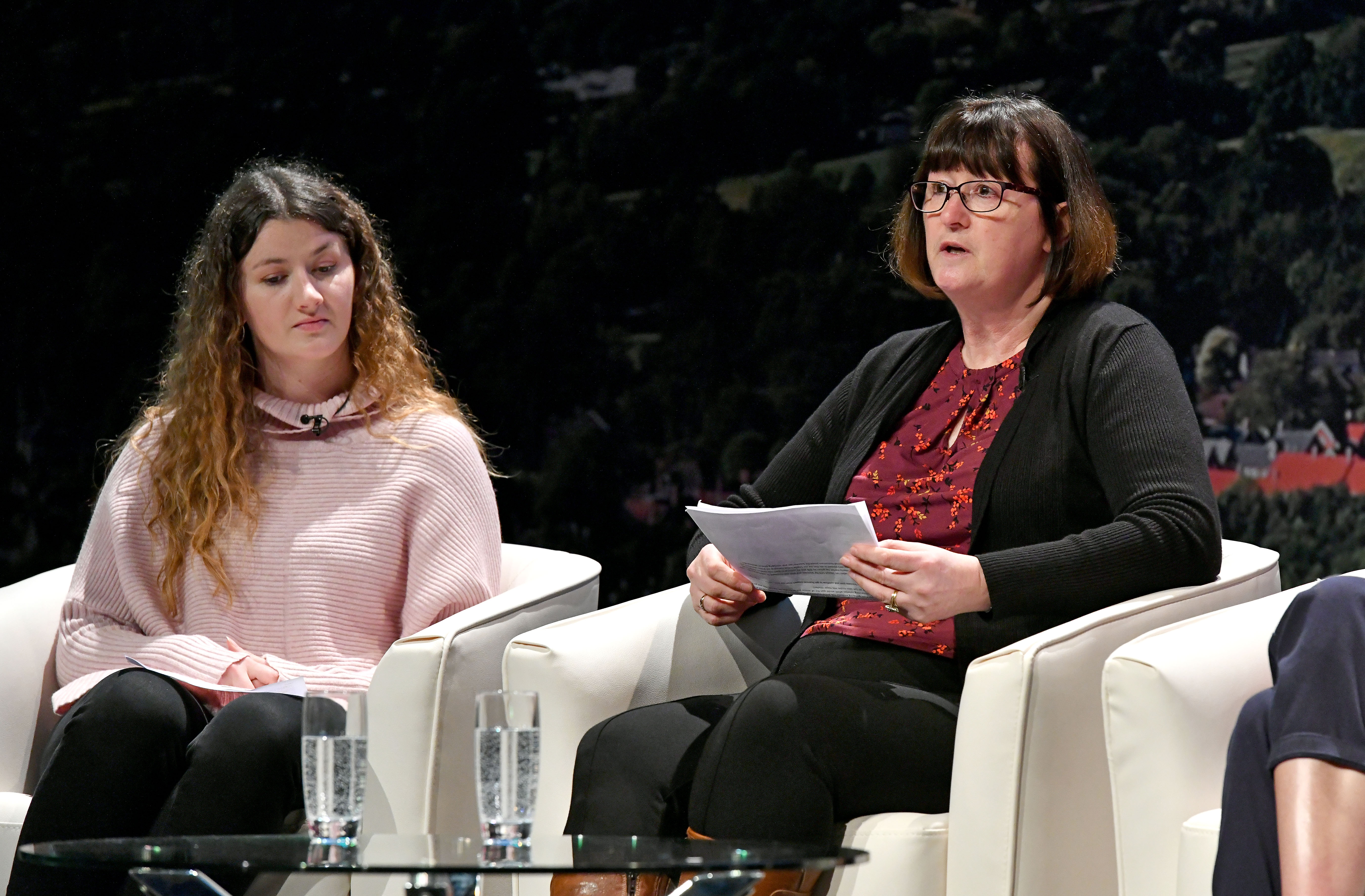
Above: A family affair. The Mees have built a business that is sustainable for their two daughters.
When Paul and Nic Renison took on a 360 acre upland farm they had no interest in the environment and they just wanted to farm. They had high borrowings and had to work off-farm to support themselves until they discovered rotational grazing.
“When you do rotational grazing you grow a lot more grass, so we did the typical farmer thing and got more sheep and we created a monoculture,” said Nic. Now they also have a suckler herd and also have pigs and poultry and went ‘cold turkey’ on fertiliser seven years ago, which means their inputs are low. They sell a lot of food direct to the public and are more profitable. “I see where I was 10 years ago and now I see nature as a huge part of our business, it’s a circular system. Wildlife is a huge asset to our business.”
Henry Du Val said the question of inheritance meant that his mother’s 1,000-acre farm was not enough to support three generations and they had to decide whether to sell up, invest elsewhere or focus on diversification.
They decided to invest in a 500kw anaerobic digestion plant and now sell gas to the grid. Son Edward said that getting investment was a challenge as banks understand solar and wind, but not AD.
The plant now takes feedstock from 40 farms and employs 40 staff.
All members were agreed that family support was vital in maintaining their own resilience, which was then reflected in the business.
